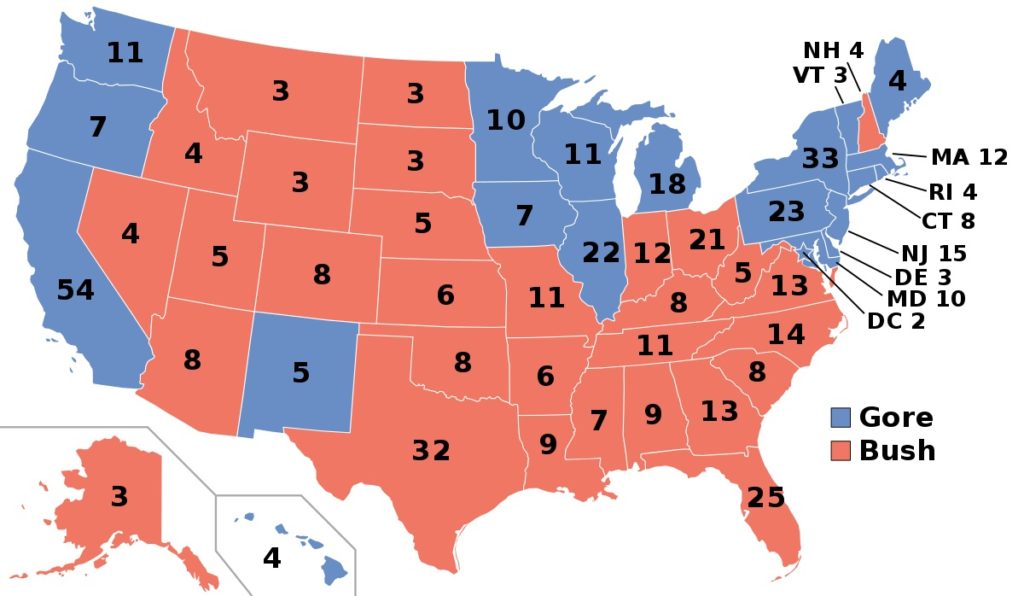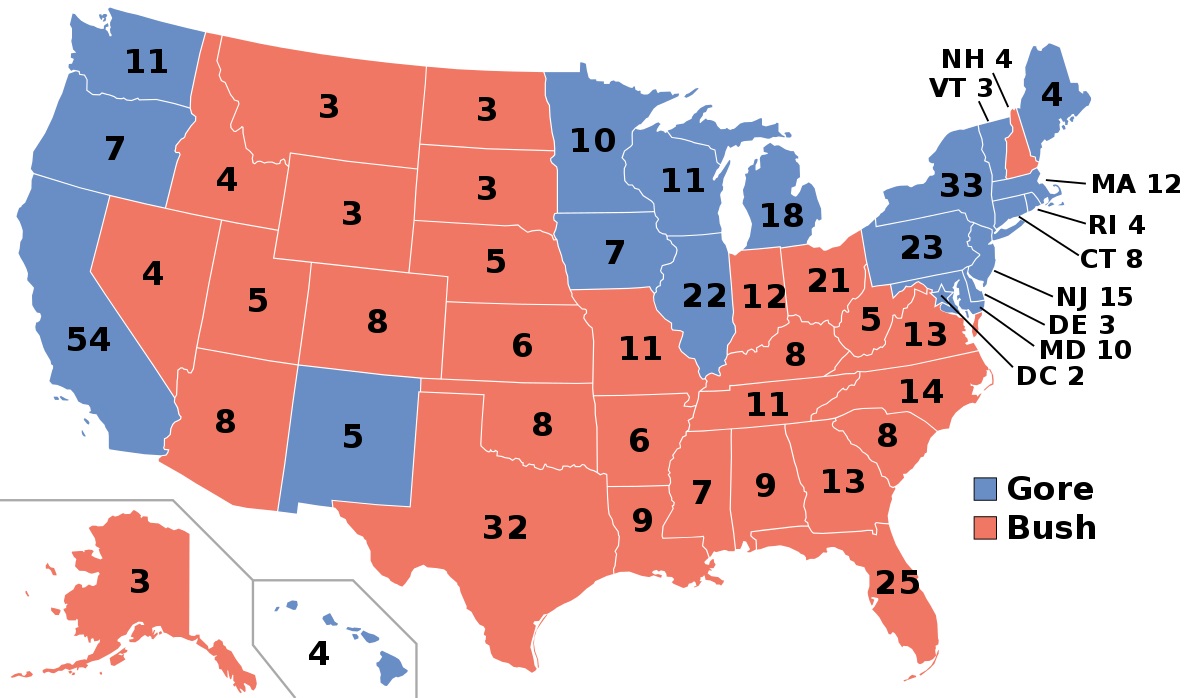
In 2001 Dan Heaton wrote a thesis discussing that “Following the recent debacle of the United States Presidential Election, has the time come to abolish the Electoral College in favour of a more representative system of electing the most powerful leader in the world, and can other nations be so complacent about their systems of electing their leaders?”
Over several parts, with the Presidential Inauguration upon us and following the challenges of the 2020 election, now is a great opportunity to review these arguments.
INTRODUCTION
The United States is now the only true world superpower and has long been considered a beacon of freedom and democracy for the whole world. It has a much lauded constitution with the doctrine of the separation of powers, a separation of church and state and civil liberties enshrined within that most beguiled of documents.
However, the recent election which saw George W. Bush as President and Commander in Chief has raised long felt concerns among many as to the truly democratic nature of the electoral process used to choose the Head of State of this most powerful of nations.
As the evening news was broadcast across the nation, the television networks declared that Vice President Al Gore had won the election. Then as the night went on and results started to come in from across the nation the networks were forced to retract their prediction and announced that George W. Bush was going to be victorious.
However, the election remained exceptionally close across the country and it soon became clear that Florida had become the key state, with the victor there almost certain to win the keys to the White House.
“before Gore had made his public address before his supporters, as is traditional when making a formal concession, he was informed by his aides that Florida looks a lot closer and so remarkably he phoned Governor Bush again and retracted his previous concession”
With the networks having called the election for Governor Bush in the belief that he had won Florida, Vice President Gore phoned George W. Bush and conceded defeat. However, before Gore had made his public address before his supporters, as is traditional when making a formal concession, he was informed by his aides that Florida looks a lot closer and so remarkably he phoned Governor Bush again and retracted his previous concession.
There then followed over a month of political and legal battles over the validity of ballots. From the design of the “butterfly ballot” with the names of candidates either side of punch holes to the great “chad” debate, which raged over whether a punch hole had been properly perforated.
Legal hearings took place in district, state federal and finally the United States Supreme Court over the validity of counts and whether re-counts and hand re-counts should take place. There were “stop the count” and “let them count” demonstrations both in Florida, Washington and elsewhere.
Eventually Vice President Al Gore conceded defeat on September 13th 2000, thirty-six days after the election took place, and George W. Bush the Governor of Texas became President-elect of the Union.
Meanwhile, the world had watched the scenes with a sense of confusion, disbelief and self-satisfaction that nothing like that would happen here!
The reason why Florida’s result was of such importance is because of the Electoral College system used to elect the President. The term Electoral College is a phrase used every four years when Presidential elections occur but understood by few, even in America. The full implications of its effect did not become clear and as controversial until the recent election. The system involves the states nominating electors to decide who will be the President of the Union, each state being entitled to a number of electors equal to their representation in Congress. The system used in almost every state, results in the winner of each state receiving all of that state’s Electoral College vote. It is thus possible for the overall popular vote winner to lose by means of the Electoral College. This democratic anomaly has occurred twice before and appears to have happened in the election of 2000. Recent events have brought the procedure and American democracy into question, to such an extent that one English commentator has argued that:
“The U.S. Constitution is killing democracy…. The procedures for selecting a President set down more than 200 years ago to suit a set of small states, populated by yeoman puritans, hugging the eastern seaboard of a continent, remain virtually unaltered as the method by which the single military, economic, political and cultural superpower on the planet reaches decisions of fundamental importance. This will not do, change must come and the totally surreal developments that have now been witnessed across the world this week should be the catalyst.” (1)
“The United States Presidential Electoral College is therefore of current legal, constitutional and political significance”
The United States Presidential Electoral College is therefore of current legal, constitutional and political significance. Numerous arguments have been put forward in favour of abolition of the Electoral College and its reform, whilst defenders of the process have also been quick to come to its defence, and there have been several proposals for reform placed before the House of Representatives in the new session of Congress.
In this work I intend to assess the Electoral College and look at possible alternatives that are available in other Western countries. I will use the following format:
Chapter 1 – I explore the origins of the Electoral College and its workings in the early years of the Union. I also look at its use in elections throughout history and its workings today.
Chapter 2 – In this Chapter I assess the disadvantages of the system as asserted by its opponents along with its advantages as purported by its supporters.
Chapter 3 – I use this chapter to examine and analyse the reform proposals currently before the 107th Congress.
Chapter 4 – In this chapter I explore the systems used for selecting the Heads of State of three Western European countries and compare them to the American system.
Conclusion – In this chapter I assess other reasons for concern over the American electoral system and compare the Electoral College to the system used to elect the Government of the United Kingdom. Finally I assess the need for and the likelihood of reform.
Notes
- Haines, Tim. The Times November 9th 2000 p18
United States Electoral College


2 thoughts on “United States Electoral College – INTRODUCTION”
Comments are closed.